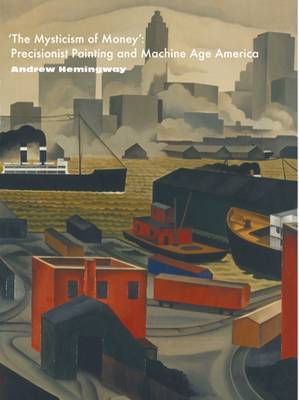George Ault? Stefan Hirsch? Louis Lozowick? Names of little significance except to specialists in American art of the 1920's and 1930's. But neither Ault nor Hirsch nor Lozowick is a marginal artist if the scope if Modernist culture in America is broadened to include proponents of leftist politics. Then, Andrew Hemingway, demonstrates, their paintings acquire great importance as critical representations of capitalists system. Hemingway is a masterful guide to the discussions and publications that fed some artists' drive to make art relevant to industrial society. With this context in hand, Hemingway looks closely as the artists' espousal of Precisionism, the hard-edged style often regarded as an apolitical American variant on Cubism. By contrast, Hemingway contends it served some artists as a vehicle for portraying the dehuminizing consequences of the industrial regime. His book revolves around the notion that the anti-capitalism of Ault, Hirsch and Lozowick functioned as a king of "romance" based on the opposition of the natural to the artificial or reified. No prior book offers such a provocative (and timely) account of the developments of Precisionist painting.
It is made all the more valuable by its consideration of the writings of John Dos Passos, Sinclair Lewis, and Theodore Dreiser.
- ISBN10 1934772801
- ISBN13 9781934772805
- Publish Date 1 May 2013
- Publish Status Out of Stock
- Out of Print 8 May 2015
- Publish Country US
- Imprint Periscope Publishing
- Format Hardcover
- Pages 294
- Language English
